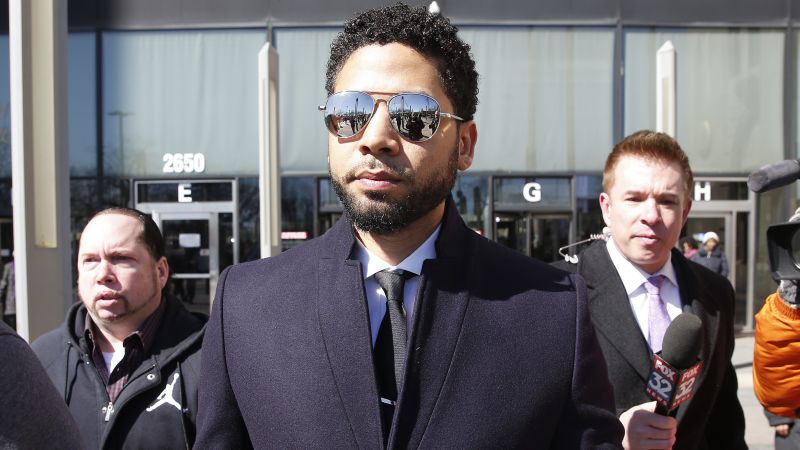The Illinois Supreme Court made headlines on Thursday by overturning the conviction of actor Jussie Smollett, who was accused of orchestrating a racist and homophobic attack against himself in downtown Chicago back in 2019. This decision not only exonerated him from the charges that he had staged the attack but also called into question the validity of the prosecution’s actions throughout the ordeal. Smollett, well-known for his role in the television series “Empire,” became a focal point of a nationwide discussion regarding race and hate crimes as his case gained immense media coverage.
The court ruled with a unanimous 5-0 decision, stating that a special prosecutor should not have had the authority to step in after the Cook County state’s attorney originally decided to drop the charges against Smollett. Initially, the prosecutor, Kim Foxx, had agreed to dismiss the case in exchange for Smollett forfeiting a $10,000 bond and completing community service. The Illinois Supreme Court’s decision did not, however, address Smollett’s steadfast proclamations of his innocence throughout the legal proceedings.
Smollett’s claims of having been viciously attacked were that two men assaulted him, hurling racial and homophobic slurs, all while draping a noose around his neck. This incident incited significant public outrage and led to extensive investigative efforts by the Chicago Police Department. Prosecutors posited that Smollett had staged the attack in a ploy to garner sympathy and media attention, purportedly dissatisfied with the studio’s response to an earlier instance of hate mail he received.
Justice Elizabeth Rochford, in her opinion on the ruling, emphasized the importance of upholding agreements made within the justice system, noting that disregarding them could result in grave injustices. In her words, “We are aware that this case has generated significant public interest and that many people were dissatisfied with the resolution of the original case and believed it to be unjust.” The opinion reinforced the idea that, regardless of public sentiments, the legal framework must be respected.
Smollett’s legal team argued that the case should have been considered closed when Foxx’s office decided to drop the initial charges. However, after a special prosecutor, Dan Webb, took over the case, a grand jury reinstated the charges, leading to Smollett’s eventual conviction on five counts of disorderly conduct in 2021. The complexities surrounding the case illustrate the tension between public perception and legal protocol.
In the aftermath of the decision, media outlets sought comments from both Smollett’s attorney and Foxx’s office; both sides had argued that Smollett had been victimized by a politicized and biased justice system. Evidence presented at trial suggested that Smollett had paid two associates from “Empire” a sum of $3,500 to carry out the staged attack, directing them to use specific slurs and to echo sentiments associated with Donald Trump’s campaign slogan, “Make America Great Again,” thus intensifying the political undertones surrounding the case.
Despite maintaining his innocence, Smollett testified during the trial that there was “no hoax” and insisted he was indeed a victim of a hate crime. Following his conviction, he was sentenced to 150 days in jail, with only six served before being released pending his appeal. Moreover, he was placed on probation for 30 months and ordered to pay approximately $130,000 in restitution.
Although a state appellate court had previously upheld his conviction, indicating that no agreements had been made promising that he would avoid further prosecution, the Illinois Supreme Court’s ruling serves as a significant precedent in the legal system. Notably, Illinois Supreme Court Chief Justice Mary Jane Theis and Justice Joy Cunningham recused themselves from participating in this critical decision, underscoring the contentious nature of the case.
In essence, the overturning of Jussie Smollett’s conviction represents a pivotal moment in legal discourse surrounding the boundaries of prosecutorial decision-making, the implications of public interest in judicial matters, and the ongoing discussion regarding the handling of race and hate crimes in society.



